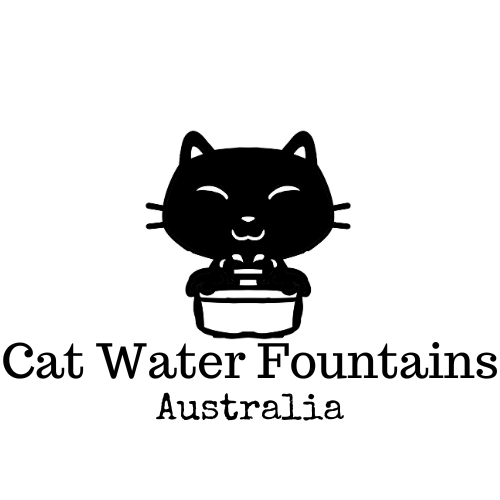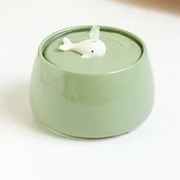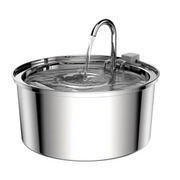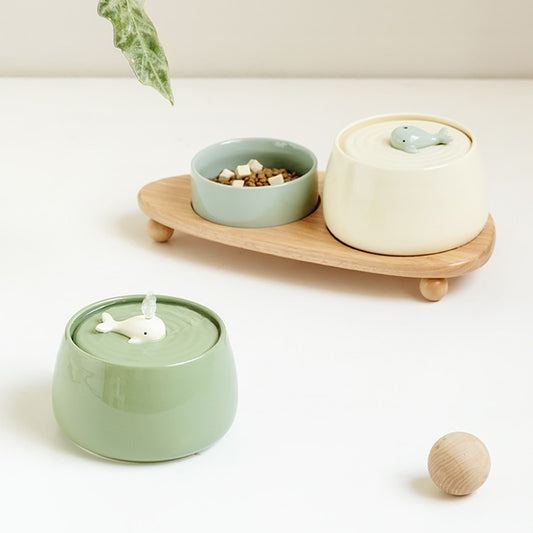Can Cats Eat Apples? Everything You Need to Know
Cat Water Fountains Australia
Share This Article
| Summary: Yes, cats can eat apples in moderation. Apples are not toxic to cats and can provide some nutritional benefits. However, it's important to note that cats are obligate carnivores, which means their primary diet should consist of meat. Apples should only be given as an occasional treat and in tiny amounts. |
At Cat Water Fountains Australia, we understand the importance of ensuring the well-being of our feline companions. As pet owners, we are always looking for ways to provide our cats with a balanced diet and a variety of tasty treats. While cats are obligate carnivores, meaning their natural diet consists mainly of meat, they may occasionally show interest in human foods, including apples. But can cats eat apples, and is it safe for them?
Cat Hair Remover Roller
Buy Now
Understanding Feline Dietary Needs
Before we delve into the question of whether cats can eat apples, it's crucial to understand the dietary needs of our furry friends. Cats, as obligate carnivores, require a diet rich in animal-based proteins. Their bodies are designed to digest and assimilate nutrients from meat sources, making it essential for their overall health and well-being.
Apples and Cats: The Lowdown
While cats primarily need a meat-based diet, apples can be safe for feline consumption in moderation. Apples are a good source of vitamins, minerals, and dietary fiber, which can be beneficial to cats if fed appropriately. However, it's essential to take some precautions and understand the potential risks associated with offering apples to your feline friends.
The Benefits of Apples for Cats
Apples contain essential nutrients such as vitamin C, vitamin A, and dietary fiber, which can contribute positively to a cat's health in small quantities. Vitamin C helps boost the immune system, while vitamin A supports healthy vision and skin. The fiber in apples can aid digestion and promote bowel regularity.
Risks and Precautions
While apples can offer some health benefits, there are also potential risks involved in feeding them to cats. One significant concern is the presence of seeds in apples. Apple seeds contain a compound called amygdalin, which breaks down into cyanide when ingested. Cyanide is toxic to cats and can lead to serious health issues or even be fatal in large amounts.To mitigate the risk, it's crucial to remove the seeds and core of the apple before offering it to your cat. Additionally, apples should only be given as an occasional treat and should not replace the primary meat-based diet that cats require.
How to Safely Feed Apples to Cats
If you decide to share a small piece of apple with your feline companion, make sure to follow these essential guidelines:Always Remove Seeds and Core: As mentioned earlier, the seeds and core of the apple can be harmful to cats. Slice the apple into small, seedless pieces before offering it to your pet.
Offer Small Portions: Cats have sensitive stomachs, and sudden changes in their diet can lead to gastrointestinal issues. Offer only a small amount of apple and observe how your cat reacts to it.
Monitor for Allergic Reactions: Some cats may have allergies or sensitivities to certain foods, including apples. Watch for any signs of allergic reactions, such as vomiting, diarrhea, or excessive itching, and consult your veterinarian if necessary.
Stick to Fresh and Organic Apples: Opt for fresh, organic apples to ensure that your cat isn't exposed to harmful pesticides or preservatives.
Final Thoughts
In conclusion, while cats are obligate carnivores, offering them small, well-prepared portions of apples as an occasional treat can be safe and even beneficial. Apples provide essential nutrients and dietary fiber that can complement a cat's diet when given in moderation. However, it's crucial to remove the seeds and core and to monitor your cat for any adverse reactions.
As responsible pet owners, we must prioritise our cats' dietary needs and ensure that any human food we offer them is safe and suitable for their consumption. While apples can be an exciting and nutritious treat for your feline friend, remember that a balanced and meat-based diet remains essential for their overall health and well-being.
Note: This article is intended for informational purposes only and should not be considered as veterinary advice. If you have specific concerns or questions about your cat's diet, it is recommended to consult with a qualified veterinarian.









